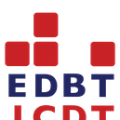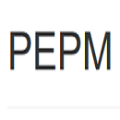国庆加班 | 10月份截稿CCF推荐国际会议信息5条
信息安全及密码学
DFRWS-EU 2020
Digital Forensic Research Workshop
全文截稿: 2019-10-04
开会时间: 2020-03-25
会议难度: ★★★
CCF分类: C类
会议地点: Oxford, UK
网址:http://www.dfrws.org/conferences/dfrws-eu-2020
DFRWS EU 2020 will be hosted in the UK, at the University of Oxford, which is a world-leading centre of learning, teaching and research, and the oldest university in the English-speaking world.
The conference will be held within the Andrew Wiles Building, which is the home of the Mathematical Institute, and also contains the largest purpose-built lecture theatres and conference facilities in Oxford.
The city of Oxford is a diverse and historic city, just 57 miles (92 km) to the west of London and well connected to the rest of the UK. Oxford today is a modern and forward-looking city, and one of the greenest cities in the south of England with extensive parkland and meadows within the city boundaries. It is surrounded by rolling countryside – the Cotswolds, Chilterns and North Wessex Downs and the rivers Thames and Cherwell run through it.
图形学与多媒体
PacificVis 2020
IEEE Pacific Visualization Symposium
摘要截稿: 2019-09-27
全文截稿: 2019-10-04
开会时间: 2020-04-14
会议难度: ★★★
CCF分类: C类
会议地点: Tianjin, China
网址:https://www.pvis.org
The 13th IEEE Pacific Visualization Symposium (PacificVis 2020) will be held in Tianjin, China during April 14 to 17, 2020. As part of PacificVis, workshop/tutorial sessions will be held on April 14, with the Symposium starting from April 15.
Visualization has become an increasingly important research area due to its wide range of applications in many disciplines. PacificVis is an IEEE sponsored international visualization symposium held in the Asia-Pacific region, with the objective to foster greater exchange between visualization researchers and practitioners, and to draw more researchers in the Asia-Pacific region to enter this rapidly growing area of research.
数据库管理与信息检索
EDBT 2020
International Conference on Extending DB Technology
摘要截稿: 2019-10-07
全文截稿: 2019-10-11
开会时间: 2020-03-30
会议难度: ★★★★
CCF分类: B类
会议地点: Copenhagen, Denmark
网址:https://www.edbt.org/
The EDBT series of conferences is an established and prestigious forum for the exchange of the latest research results in data management. Held in an attractive European location, the conference provides unique opportunities for database researchers, practitioners, developers, and users to explore new ideas, techniques, and tools, and to exchange experiences. The previous events were held in Venice, Vienna, Cambridge, Avignon, Valencia, Konstanz, Prague, Heraklion, Munich, Nantes, St Petersburg, Lausanne, Uppsala, Berlin, Genoa, Athens, Brussels, Bordeaux, Venice, Vienna and Lisbon. Following the successful SIGMOD/PODS model, EDBT and ICDT are held annually as joint conferences, beginning in 2009.
We encourage submissions of research papers related to all aspects of data management defined broadly, and particularly encourage work on topics of emerging interest in the database research and development communities. We welcome papers on topics including, but not limited to:
Availability, reliability, and scalability
Big data storage, processing and transformation
Complex event processing and data streams
Concurrency control, recovery, and transaction management
Data management in clouds
Data mining and knowledge discovery
Data quality, curation, and provenance
Data warehousing, large-scale analytics and ETL tools
Emerging hardware and in-memory databases
Experiments and analysis
Graph databases and semantic web
Heterogeneous databases, data integration
Middleware and workflow management
Parallel, distributed and grid data management
Privacy, trust and security in databases
Query processing and optimization
Scientific and statistical databases
Semi-structured and linked data management
Sensor and mobile data management
Social networks and crowdsourcing
Spatial, temporal, and geographic databases
Text databases and information retrieval
Tuning, monitoring, benchmarking and performance evaluation
User interfaces and data visualization
Visionary
数据库管理与信息检索
SDM 2020
SIAM International Conference on Data Mining
摘要截稿: 2019-10-04
全文截稿: 2019-10-11
开会时间: 2020-05-07
会议难度: ★★★★
CCF分类: B类
会议地点: Cincinnati, Ohio, U.S.
网址:https://www.siam.org/Conferences/CM/Conference/sdm20
Data mining is the computational process for discovering valuable knowledge from data – the core of modern Data Science. It has enormous applications in numerous fields, including science, engineering, healthcare, business, and medicine. Typical datasets in these fields are large, complex, and often noisy. Extracting knowledge from these datasets requires the use of sophisticated, high-performance, and principled analysis techniques and algorithms. These techniques in turn require implementations on high performance computational infrastructure that are carefully tuned for performance. Powerful visualization technologies along with effective user interfaces are also essential to make data mining tools appealing to researchers, analysts, data scientists and application developers from different disciplines, as well as usable by stakeholders.
SDM has established itself as a leading conference in the field of data mining and provides a venue for researchers who are addressing these problems to present their work in a peer-reviewed forum. SDM emphasizes principled methods with solid mathematical foundation, is known for its high-quality and high-impact technical papers, and offers a strong workshop and tutorial program (which are included in the conference registration). The proceedings of the conference are published in archival form, and are also made available on the SIAM web site.
软件工程
PEPM 2020
ACM SIGPLAN Symposium on Partial Evaluation and Semantics Based Programming Manipulation
全文截稿: 2019-10-18
开会时间: 2020-01-19
会议难度: ★★★
CCF分类: C类
会议地点: New Orleans, Louisiana, United States
网址:https://popl20.sigplan.org/track/pepm-2020-papers
The ACM SIGPLAN Workshop on Partial Evaluation and Program Manipulation (PEPM), which has a history going back to 1991 and has co-located with POPL every year since 2006, originates in the discoveries of practically useful automated techniques for evaluating programs with only partial input. Over the years, the scope of PEPM has expanded to include a variety of research areas centred around the theme of semantics-based program manipulation — the systematic exploitation of treating programs not only as subject to black-box execution, but also as data structures that can be generated, analysed, and transformed while establishing or maintaining important semantic properties.
In addition to the traditional PEPM topics (see below), PEPM 2020 welcomes submissions in new domains, in particular:
- Semantics based and machine-learning based program synthesis and program optimisation.
- Modelling, analysis, and transformation techniques for distributed and concurrent protocols and programs, such as session types, linear types, and contract specifications.
More generally, topics of interest for PEPM 2020 include, but are not limited to:
- Program and model manipulation techniques such as: supercompilation, partial evaluation, fusion, on-the-fly program adaptation, active libraries, program inversion, slicing, symbolic execution, refactoring, decompilation, and obfuscation.
- Techniques that treat programs/models as data objects including metaprogramming, generative programming, embedded domain-specific languages, program synthesis by sketching and inductive programming, staged computation, and model-driven program generation and transformation.
- Program analysis techniques that are used to drive program/model manipulation such as: abstract interpretation, termination checking, binding-time analysis, constraint solving, type systems, automated testing and test case generation.
- Application of the above techniques including case studies of program manipulation in real-world (industrial, open-source) projects and software development processes, descriptions of robust tools capable of effectively handling realistic applications, benchmarking. Examples of application domains include legacy program understanding and transformation, DSL implementations, visual languages and end-user programming, scientific computing, middleware frameworks and infrastructure needed for distributed and web-based applications, embedded and resource-limited computation, and security.
广告
登录查看更多
相关内容
DFRWS:Digital Forensic Research Workshop。
Explanation:数字法医研究工作坊。
Publisher:Elsevier。
SIT: http://dblp.uni-trier.de/db/conf/dfrws/
Arxiv
78+阅读 · 2019年11月10日
Arxiv
3+阅读 · 2018年4月30日
Arxiv
5+阅读 · 2018年4月13日






